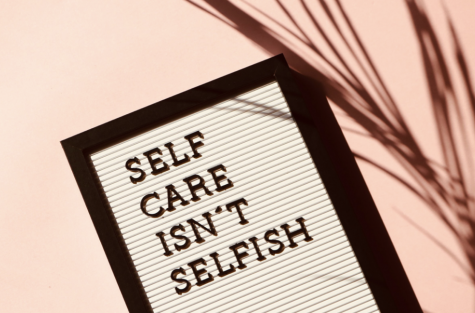Since when did “self-care” become such a buzzword?
Apr 22, 2021

As a person who is always busy and has several projects stacked up, I am often toldI need to initiate more self-care in my life. People suggest I put on a face mask before bed, take a nap and eat food fueled with nutrients to keep me running like a well-oiled machine.
The thing is, I have two problems with how easily society slips the world of self-care into our lives. The first problem I have with overuse of self-care is that people do not know why self-care even exists.
From healing and improving our physical well-being to a type of activism and daily practice, self-care functions in multiple ways. The concept of self-care came into existence centuries ago as a manner of the best and right ways to live, with race and socioeconomic status playing a big role in who could and count not practice.
According to an article on the origins of self-care, “Before the turn of the 20th century, concepts of ‘self-governance’ and ‘self-care’ were a means of theorizing that white, Western culture was superior to the cultures it was colonizing around the world.”
Author Jerico Mandybur explains how self-care was originally interpreted as the right way to take care of oneself. “European standards of dress, hygiene, diet and gender were applied — by force, as far as the British Empire stretched, with the implication that the colonists always knew what was best,” says Mandybur.
Another surge of self-care prevailed through the 1960s at a pivotal time for both the civil rights and women’s movement. Self-care became a radical, political act and a method to counter treatment in a paternalistic medical system.
According to Slate, “With the rise of the women’s movement and the civil rights movement, this medical idea became a political one.” Essentially, communities began taking care of themselves because the mainstream medical practices couldn’t and wouldn’t look out for them.

In addition to that brief history lesson, my second problem with the self-care buzzword is that self-care is overlooked and undervalued.
During my freshman year, I emailed a professor ahead of time that I desperately needed a mental health day. She told me that it was unacceptable to take a break. I had a health crisis the following day and made sure the nurse on call at the ER gave me a doctor’s note to prove I needed to take care of myself.
Ever since, I have been afraid to tell any professors that I need a day off. Self-care seems to be an invalid reason for individuals to take care of their mental and physical health.
Companies have coined self-care as a way to sell skin care, healthy foods and wellness products as if self-care is a lifestyle, rather than a necessity. According to SmartBrief, self-care is a $9.9 billion industry, and more goods are produced every day to adhere to the latest trends.
After discovering the importance of self-care, I have a newfound understanding: I need to focus on myself and not worry about the opinions of others when it comes to taking care of my own mind and body.
For those who never allow themselves time for self-care practices, I highly recommend starting small and working your way up. Brew your favorite coffee or tea in the morning, take a walk during your lunch, shut your phone off an hour before bed or even make an appointment at the local spa when you need some R&R.
If I need a day, I will give myself a day. If I need a walk, I will get myself outside to go for that walk. If I need a blissful, uninterrupted moment by myself, I am going to give myself that. I urge others to do the same because we deserve it.












